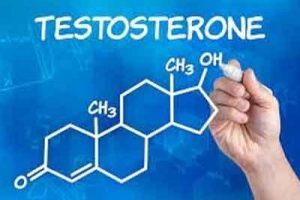- Home
- Editorial
- News
- Practice Guidelines
- Anesthesiology Guidelines
- Cancer Guidelines
- Cardiac Sciences Guidelines
- Critical Care Guidelines
- Dentistry Guidelines
- Dermatology Guidelines
- Diabetes and Endo Guidelines
- Diagnostics Guidelines
- ENT Guidelines
- Featured Practice Guidelines
- Gastroenterology Guidelines
- Geriatrics Guidelines
- Medicine Guidelines
- Nephrology Guidelines
- Neurosciences Guidelines
- Obs and Gynae Guidelines
- Ophthalmology Guidelines
- Orthopaedics Guidelines
- Paediatrics Guidelines
- Psychiatry Guidelines
- Pulmonology Guidelines
- Radiology Guidelines
- Surgery Guidelines
- Urology Guidelines
New cure for the male andropause: scientists use stem cells to restore testosterone

Beijing : Chinese researchers have developed a potential new and safe approach for treating male hypogonadism, popularly known as male andropause, by directly converting adult skin cells into testosterone-producing cells.
Male hypogonadism, a condition affecting almost a third of older men, occurs when the body does not produce enough of the testosterone hormone, primarily due to the dysfunction of testosterone-producing Leydig cells in the testes.
Testosterone replacement therapy can alleviate some symptoms resulting from Leydig cell failure such as mood disturbances, sexual dysfunction and muscle weakening, but it may also increase the risk of prostate and cardiovascular complications, including the formation of blood clots, a new study published this week in the US journal Stem Cell Reports said.
Scientists then turned to an alternative type of treatment, which involved production of Leydig cells by differentiating stem cells of different sources, such as embryonic stem cells, but the stem cell-based method has ethical concerns and the risk of tumor occurrence.
In the new study, Yadong Huang and Zhijian Su of China's Jinan University reasoned that the direct conversion of adult skin cells into Leydig cells would be a safer regenerative medicine approach, state run Xinhua news agency reported.
To test this idea, the researchers screened 11 so-called transcription factors that could affect the ability of Leydig cells to produce testosterone.
By genetically manipulating three of the transcription factors, they were able to directly reprogram mouse skin cells into functional Leydig-like cells, which showed normal gene activity and were capable of producing testosterone.
When transplanted into the testes of rats or mice with hypogonadism, these cells survived and restored normal testosterone levels.
"Our study is the first to report a method for generating Leydig cells by means of direct cell reprogramming," Huang of Jinan University said.
"This alternative source of Leydig cells will be of great significance for basic research and provides the attractive prospect of clinical application in the field of regenerative medicine," he said.
The researchers suggested that future studies should aim to improve the efficiency of the approach to generate a pure population of cells that closely mimic adult Leydig cells "In the end, we are hopeful that this research will pave the way for clinical trials testing a novel regenerative medicine approach to treat androgen deficiency in men," Su said.

Disclaimer: This site is primarily intended for healthcare professionals. Any content/information on this website does not replace the advice of medical and/or health professionals and should not be construed as medical/diagnostic advice/endorsement or prescription. Use of this site is subject to our terms of use, privacy policy, advertisement policy. © 2020 Minerva Medical Treatment Pvt Ltd